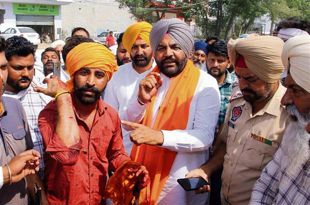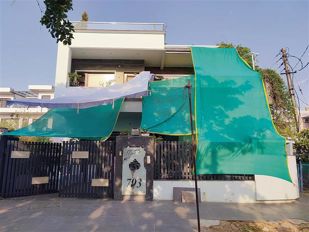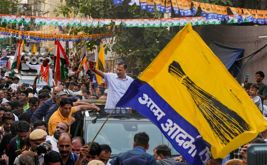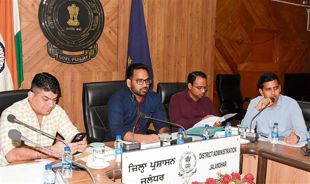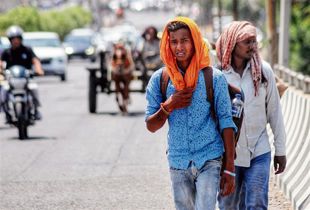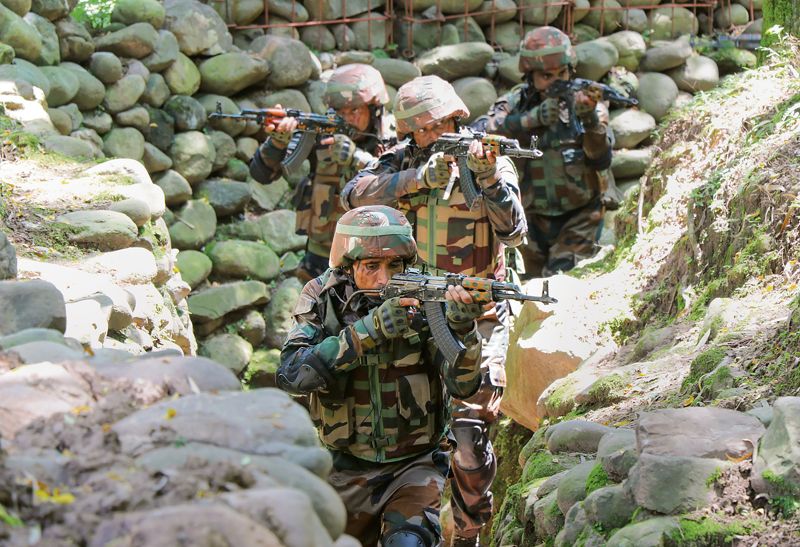
CRUCIAL FOUNDATION: National security plays a paramount role in creating a safe and stable environment. PTI
Lt Gen DS Hooda (retd)
Former Northern Army Commander
AS India celebrates 76 years of Independence today, it is an opportune moment to introspect on the state of the nation, looking dispassionately at the successes and challenges. There is much to be proud of as an Indian. Last year, we became the fifth-largest economy in the world and are expected to attain the number three rank in the next five years. The nation has assertively established its global geopolitical prominence, being wooed by the Global North while simultaneously advocating the interests of the Global South.
Among the crucial foundations of nation-building, national security plays a paramount role in creating a safe and stable environment that facilitates economic growth, social cohesion and the protection of sovereignty. India has significant security challenges, and it is important to evaluate how these have been handled when attempting to discern our future trajectory.
However, commencing this evaluation requires clarity of understanding on the ambit of national security. The traditional delineation of national security primarily involves safeguarding a nation’s sovereignty and territorial integrity against internal and external threats. Some scholars propose broadening the scope to include economic security, energy security, climate change, public health, etc. Without going into the merits of which definition is more accurate, this article will focus on the traditional and narrower areas of national security related to external and internal threats.
On the external security front, India faces two hostile neighbours — Pakistan and China. The threat from Pakistan has appreciably diminished, despite Islamabad’s efforts to sustain a low-intensity insurgency in Jammu and Kashmir. The growing economic and military power differential between the two countries, New Delhi’s refusal to discuss the Kashmir issue, and India’s cross-border strikes have limited Pakistan’s options. The political, economic and internal security crisis in Pakistan also restrains the country from attempting any misadventure along the border.
In 2020, India faced a serious situation when the Chinese PLA carried out large-scale incursions across the LAC in Ladakh. After three years, the standoff continues at Depsang and Demchok, and there are some reports that the buffer zones created to separate the military forces are territorially disadvantageous to India. However, what is also true is that after the initial surprise, India’s political and military response has been steadfast.
The Indian Army has carried out a major realignment of forces along the LAC, and infrastructure development is happening at a great speed. India still remains at a disadvantage in terms of roads leading to the LAC, particularly in Arunachal Pradesh, but the hardening of the LAC has greatly improved the Army’s response to the PLA’s attempted incursions, as witnesses at Yangtse in December 2022.
India has made it clear that the Chinese actions of 2020 have “eroded strategic trust and the public and political basis of the relationship.” There is a breakdown of confidence-building measures, and both sides have deployed thousands of additional soldiers along the LAC. There is, therefore, a great deal of unpredictability on the border, but the Indian military is at a higher level of preparedness than it was three years ago.
Internal security threats primarily derive from challenges to the authority of the state. These could be classified as traditional and non-traditional threats. Traditional threats emerge when armed factions such as insurgents and terrorists attack the state to undermine the government’s legitimacy and force a change in the existing political order. This is being witnessed in the Maoist areas, J&K, and to some extent in the North-East.
India has been largely successful in controlling the activities of insurgent/terrorist groups through a combination of kinetic actions, ceasefire arrangements and promises of greater autonomy. Violence levels have dropped significantly, and there is little challenge to the state’s authority. A criticism that could be levelled is that there is inadequate focus on finding long-term solutions that can bring permanence to peace by addressing the aspirations of the population. The Naga Accord remains elusive, Manipur is an ethnic flashpoint, and J&K has been without elected representatives since November 2018.
Non-traditional internal threats occur when a state’s authority is challenged by radicalised sections of society who decide to deliver their own brand of justice based on their religious, ethnic or ideological affiliations. A surcharged atmosphere is created with a narrative that religious sentiments have been hurt or that their identity is in peril. In this polarisation, vigilante groups commit violence targeted at the ‘other’. The situation is exacerbated when the political elite and influential members of society are seen as tacitly supporting these actions.
If vigilante groups remain unchecked, their power and influence over society increases, even as the state’s authority weakens. We are seeing this play out in Manipur. Different explanations are given for the outbreak of violence in Manipur, but the reasons for the delay in controlling the situation are clear. Vigilante groups from the Meitei and Kuki communities have taken over the streets, looting weapons from police armouries, indulging in mass violence and driving people out of their homes. The state appears helpless to exercise its authority as there is little confidence in the local police, and the Central forces are prevented by women protesters from carrying out their tasks.
It could be argued that what is happening in Manipur is primarily a law and order situation, and there is no national security angle. However, it must be understood that the state’s monopoly over the use of force is a cardinal tenet of national security. Any dilution of this principle can lead to societal destabilisation and, by extension, weaken national security.
Looking at India’s security landscape, the government has done well in tackling traditional external and internal security threats. It needs to demonstrate a similar resolve in combating radical groups. This will require an approach that clamps down on extremism, disinformation, fake news and vigilante justice. Another critical element in the government’s strategy must be to empower the local police and free it from the burden of politicisation.
Join Whatsapp Channel of The Tribune for latest updates.






















